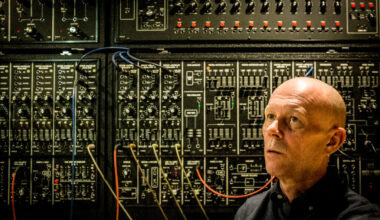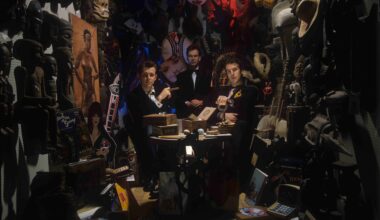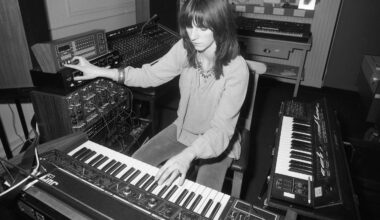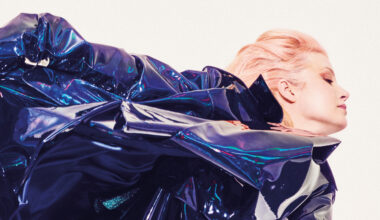Inspired by the Bergman flick of the same name, Rival Consoles’ ‘persona’ album moves him one step closer to film soundtracks being his next musical step
Electronic composer/producer Ryan Lee West, better known as Rival Consoles, sets out his stall in no uncertain terms.
“I’m interested in being uncomfortable, as a device,” he says. “On the last four records, I used a certain palette of sounds that worked quite well and gave me an identity, but that’s become a little bit too safe and redundant. You want to include moments where it feels right, but also push beyond that. My nature, as a maker, is to be a bit self-destructive.”
Identity is a pertinent theme (as is that self-destructive streak, more of which shortly), given that we’re ensconced at West’s compact studio in London’s Forest Hill, chatting about his latest album, ‘Persona’, inspired by Ingmar Bergman’s powerful, epochal 1966 psychological thriller of the same name, in which two women gradually lose their sense of self.
“It’s like a bombardment of references to the human psyche,” says West of the film, which he first studied at university. “The thing I love about the beginning is when the young boy makes contact with this screen where his mother’s face is morphing between two personalities. I like that from an artistic point of view because as a filmmaker, Bergman is using really simple technology to express something really deep. It doesn’t feel like he’s forcing something to happen.”
The same could easily be said of Rival Consoles’ new album, a complex exploration of persona, which takes West’s signature humanised compositions (“songwriting with an electronic palette of sounds,” as he describes it) into even more widescreen realms. Expansive arrangements and careering soundscapes, rich with texture and intricate detail, flit from light to dark, symbolising the vagaries of human identity and emotion, a theme most obviously encapsulated in the undulating drift of ‘Untravel’, which represents, says West, “a limbo space, a feeling of ennui, of not really ever being known to others, and others not ever really being known to you.”
All told, it’s a gloriously restless, resonant and sonically more adventurous record – there’s a loose synergy with kindred spirits such as Jon Hopkins, Forest Swords, Autechre et al – on which your man’s producerly skills shine brighter than ever.
“I probably stand out a bit for stylistic reasons,” says West. “You’re always worried that the idea hasn’t got enough urgency, or whether it really needs to be heard. But because I play lots of shows, and listen to my music in different contexts, I understand much better the strengths and weaknesses of the ideas. You get to a point where you think, ‘This is strong enough’, because you can see how it behaves in different ways in different places. It’s the same with art – you might have a piece that looks a certain way in one room, but if you put it in the White Cube gallery it looks much more exciting.”
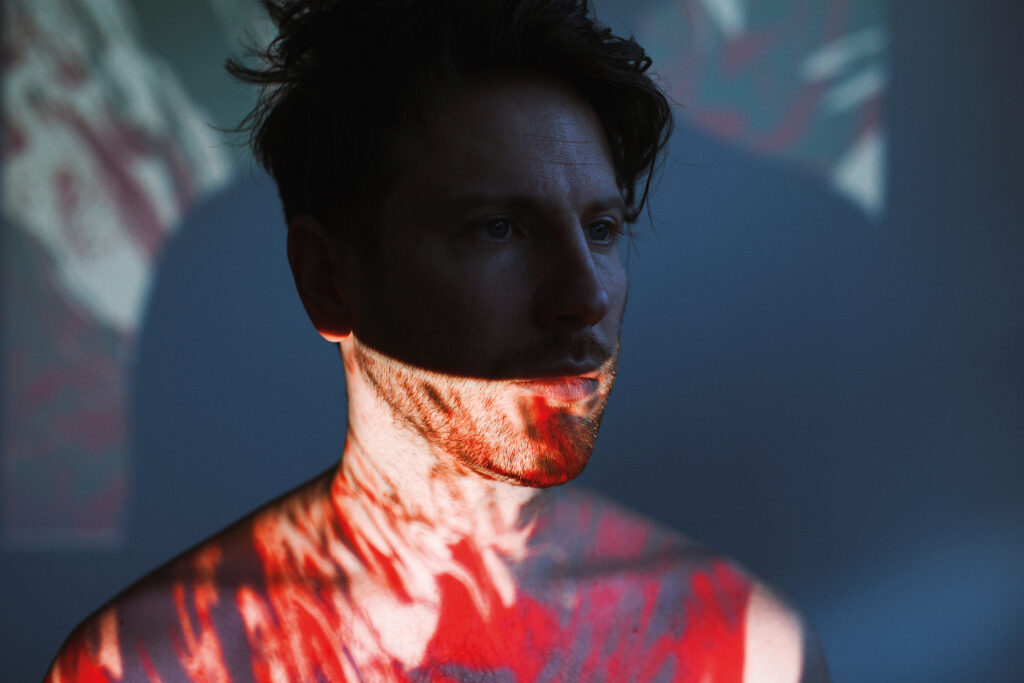
Working with a minimal set-up (“I’m too busy with ideas anyway, so it’s better for me to have less”), West sketches out ideas on an old piano, and uses analogue synths channelled through an array of guitar pedals, from which he teases all manner of skewed electronic riffs, bleeps and fills.
“Cluttering things, I think that’s the weakness of a lot of my music,” he admits. “My mind is definitely quite chaotic and frantic. That naturally just emerges in my ideas, but it’s something I exploit as well as dislike. I’m happy to be surprised, to explore music in a very chaotic way and see what emerges.”
If nothing else, he’s a bit of a sponge. During the recording process, he found himself sucking up all manner of music, from electronic and classical to “band stuff” he grew up with (“Radiohead, even Nirvana – just to experience the power of it”) and “incredible, devastatingly emotional Turkish stuff from the 60s and 70s”, courtesy of his Turkish girlfriend.
Ultimately for West it all leads to one thing: subverting the status quo, and that aforementioned self-destructive streak. Never one to take the easy option when there are more difficult, circuitous routes to achieving his desired sounds, ‘Persona’ catches the self-confessed sonic perfectionist in more of a “suck it and see” mood, tweaking, refining and purposefully disrupting and sabotaging his own creative flow – with detuned synths, or a touch of wonky soft focus – just to see what happens.
“With electronic music, it’s so difficult to produce something melodic and harmonic without it sounding crass,” he says, “so it’s just a little way of me overcoming those limitations.”
Another way is creating tension, something he’s a dab hand at, as on the breathless ‘Hidden’, which just builds and builds, and the exhilarating surge of ‘Phantom Grip’. There’s a very filmic undercurrent, too. The music veers between gentle introspection and full-on, head-nodding bangers, retaining its heightened atmospheric qualities throughout. Shifting tone and mood in this way while keeping the flow is clearly tricky, but having been on Erased Tapes since the very beginning (West was the avant-garde label’s very first signing) he’s forged a close working relationship with founder, Robert Raths, who gets involved creatively and helps to bring everything together.
“Rob is really good at understanding the bigger picture and finding the overall narrative,” says West. “It’s about allowing ideas to emerge over time, and allowing the music to be what it is. It’s never a perfect thing – I put music into the world because it’s passed a threshold where I think it’s of value or interesting to people.”
Despite all the tinkering, the album is probably his most expressive, dynamic and cohesive release to date.
“Obviously, there are always things that, in hindsight, I wish were taken down a slightly different road,” he reflects, “but that wouldn’t necessarily make it better. There’s that classic Leonardo da Vinci quote: ‘Art is never finished, only abandoned’.”
As for the future, West envisages delving more into soundtracks, a medium he’s already engaged with.
“I recently worked on [immersive film event] Secret Cinema, the ‘Blade Runner: The Final Cut’ edition,” he says. “That Vangelis palette of sound is my kind of world. Composing for films would be quite daunting, but good because it would push me. I’m sure in the next few years I’ll attempt something where I can show my style, rather than someone saying, ‘We want you to sound like Hans Zimmer’.”
It’s obvious now that he’s said it, of course, but that dystopian, sci-fi-esque element to West’s work would have made perfect sense for the ‘Blade Runner’ sequel, neo-noir hues and all.
“Yeah,” he laughs, “they should’ve asked me first!”
‘Persona’ is out on Erased Tapes

